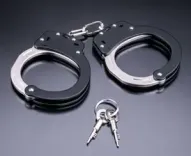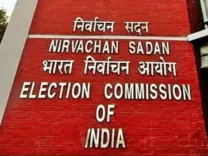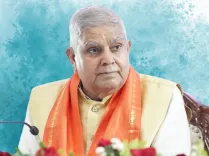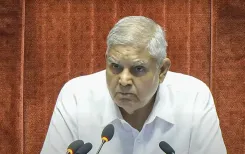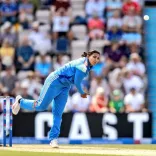Will the Maha government challenge HC’s acquittal of all 2006 Mumbai blast accused?
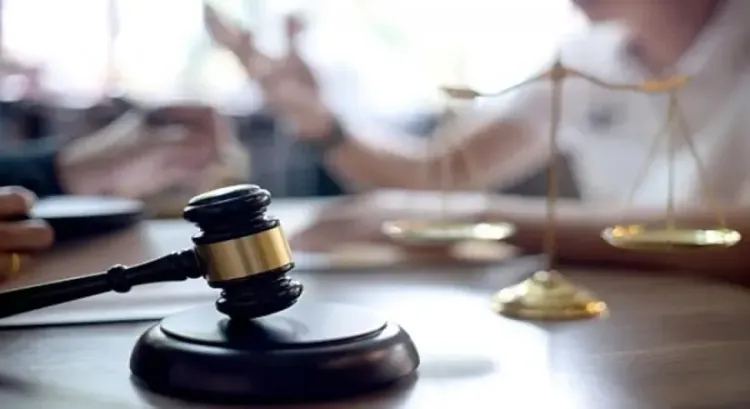
Synopsis
Key Takeaways
- Maharashtra government plans to appeal the recent acquittal of 12 accused in the 2006 Mumbai train blasts case.
- The High Court's ruling has been termed “shocking” by Chief Minister Devendra Fadnavis.
- The bombings resulted in 187 fatalities and over 800 injuries.
- The explosives used were confirmed to be RDX and Ammonium Nitrate.
- The investigation faced significant challenges, leading to the acquittal after 19 years.
Mumbai, July 21 (NationPress) – The Maharashtra government confirmed on Monday its intention to appeal the Bombay High Court’s decision to acquit 12 individuals involved in the 2006 Mumbai train blasts.
Chief Minister Devendra Fadnavis expressed his astonishment at the court's ruling, labeling it as “shocking”, and stated that the state will take the matter to the Supreme Court.
“I will thoroughly review the entire order. After discussing it with our legal team, we will challenge the high court's ruling in the Supreme Court,” Fadnavis informed reporters.
Earlier on Monday, the Bombay High Court delivered a significant ruling, acquitting 12 individuals accused in the July 11, 2006, Mumbai blasts case.
This verdict was made by a bench comprising Justice Anil Kilor and Justice S Chandak.
The High Court’s decision is a substantial setback for investigative agencies, as it annulled the sentences previously issued by the special court.
Among the 13 accused, one had already been acquitted by the special court. The high court mandated the immediate release of the 12, including five sentenced to death and seven facing life imprisonment.
The series of bomb blasts in Mumbai's local trains resulted in the deaths of 187 individuals and injuries to over 800. A total of five explosions occurred within 11 minutes across local trains between Churchgate and Borivali stations.
The explosives employed in the 2006 Mumbai train attacks were a combination of RDX and Ammonium Nitrate, packed into seven pressure cookers placed in bags. Forensic examinations confirmed the presence of these explosives in the aftermath.
The bombings were executed by Islamic militants supported by Pakistan. During the assault, seven explosions erupted in the evening rush hour. The Anti-Terrorism Squad (ATS) filed a chargesheet in November 2006 under the Maharashtra Control of Organised Crime Act (MCOCA) and the Unlawful Activities (Prevention) Act (UAPA).
The prosecution contended that the assault was orchestrated by Pakistan's intelligence agency ISI, executed by operatives from the Pakistan-based militant group Lashkar-e-Taiba, with assistance from the banned Indian group, the Students' Islamic Movement of India.
However, due to inadequacies in evidence presentation by the police and investigative agencies, the 12 accused were acquitted after spending 19 years in prison.
In 2015, a special court convicted 12 individuals in this case, sentencing five to death and seven to life imprisonment.
Among those sentenced to death were Faisal Sheikh, Asif Khan, Kamal Ansari, Ehtesham Siddiqui, and Naveed Khan. The accused contested their sentences in the High Court, alleging police coercion during the recording of their statements.
This led to the Bombay High Court questioning the Mumbai Police's investigation methods. The state government had submitted a petition in the High Court seeking confirmation of the death sentences imposed by the special court.
During Monday’s proceedings, 12 accused individuals from Yerwada, Nashik, Amravati, and Nagpur prisons participated via video conference. Following the verdict, the accused expressed their elation. The Bombay High Court subsequently overturned the previous verdict, leading to the acquittal of 11 individuals.
The bench, under Justice Kilor, stated, “It is unsafe to conclude that the appellant accused has committed the offense for which they have been convicted and sentenced. Therefore, the judgment and order of conviction and sentence are to be quashed and set aside.”

